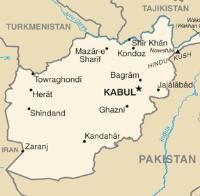KABUL, Afghanistan -- The broken elevator at the Ministry of the Economy was not unexpected. A rolling blackout the night before had hit my downtown hotel, where taps ran dry depending on the time of day. But the blunt honesty of Minister Mohammad Jalil Shams had a sobering effect on an otherwise pleasant day in Kabul: Taliban insurgents and narcotics were this year's bumper crops, he said, and if all goes well it will take at least a decade or two to win back public confidence eroded by a corrupt government that has failed to make good on promises of security and basic services. "That Afghanistan is producing the largest amount of opium in the world is a fact nobody can deny. It is also true that there is no real alternative livelihood for people" involved in poppy cultivation, the minister lamented in a late-September interview. What, then, are the best short-term options being pushed by his offices to support the rural poor inclined to better-paying Taliban commanders allied with drug cartels? There was a loud pause. "There is Saffron being grown in Herat province and roses in Jalalabad," he started, admittedly "small steps" in a long-term effort to rebuild a country handicapped by a quarter-century of war. But time is not on the government's side. When the last of the Taliban fled Kabul Nov. 13, 2001, as U.S.-led Northern Alliance forces retook the city, Indian rock music blasted in the streets, veils were removed and some beards shaven. The collective mood across Afghanistan was upbeat, and remained so over the next couple of years as foreign aid and military personnel flowed in to reverse its course. Today, five years on, residents are cautiously hopeful. Women are seldom seen without head coverings; security patrols and checkpoints have increased, especially around the fortress-like U.S. Embassy; and tense currents are perceptible in the air -- interrupted every now and then by an explosion.
Poppy Cultivation Complicates Afghanistan’s Struggle for Stability

